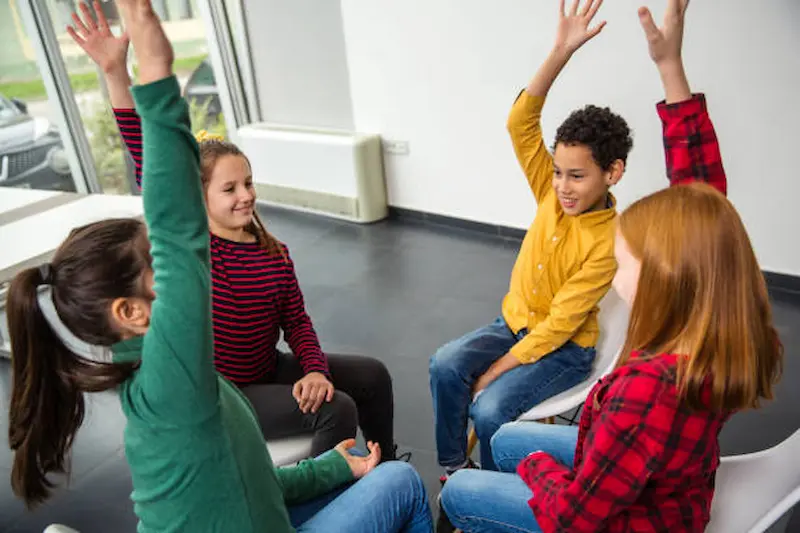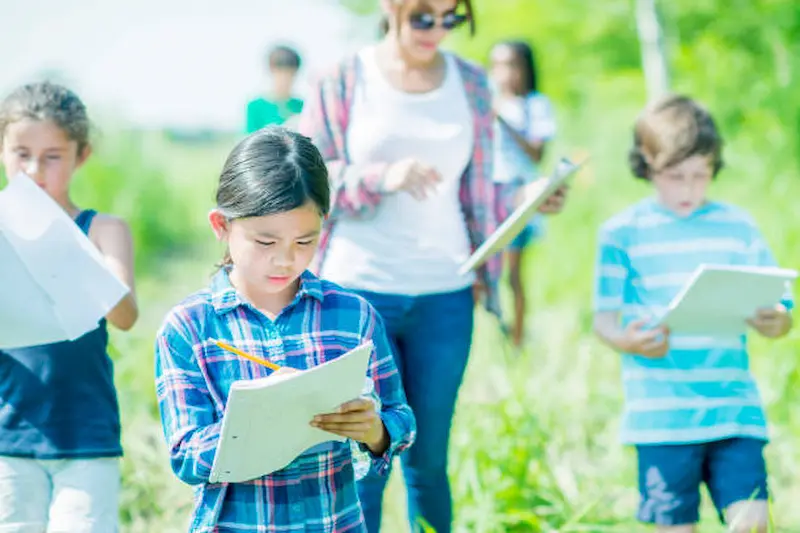Self-improvement is a continuous journey of personal growth and development. It involves setting goals, acquiring new skills, and nurturing positive habits to become the best version of oneself. This journey is marked by self-awareness, resilience, and a commitment to lifelong learning. Investing in yourself through self-improvement is crucial for success and well-being. It enhances your confidence, opens doors to opportunities, and fosters personal fulfilment, ultimately leading to a more rewarding and purpose-driven life.
In this blog, we explore the transformative journey of self-improvement, a path that leads to personal growth, enhanced skills, and a more fulfilling life. Self-improvement is not a destination but a continuous process of striving to become the best version of oneself. We delve into the principles, strategies, and benefits of self-improvement, offering insights and guidance on how to embark on this enriching journey toward self-discovery and self-mastery.
Table of contents
Understanding Self-Improvement

Self-improvement is the conscious effort to enhance one’s skills, knowledge, habits, or character to achieve personal growth and a better quality of life. It involves setting specific goals and continuously working towards self-realisation and positive change.
A. The Psychology of Self-Improvement:
Self-improvement is deeply rooted in psychology. It taps into our innate desire for progress, self-fulfilment, and the pursuit of happiness. Understanding the psychological mechanisms behind self-improvement, such as motivation, goal-setting, and resilience, can empower individuals to embark on a transformative path towards a more satisfying and purposeful life. Inspirational quotes for kids can further ignite their motivation and enthusiasm for this journey.
Setting the Foundation

A. Self-Assessment:
- Identifying Strengths and Weaknesses:
Self-assessment begins with recognizing your strengths and weaknesses. This introspection helps you leverage your strengths and address areas needing improvement, laying a strong foundation for self-improvement.
- Values and Beliefs:
Understanding your core values and beliefs is essential. Aligning your goals with your values ensures that your self-improvement journey is authentic and meaningful.
B. Defining Personal Goals:
- Short-term vs. Long-term Objectives:
Distinguish between short-term and long-term goals. Short-term goals provide immediate direction, while long-term objectives give your self-improvement journey purpose and vision.
- SMART Goals:
SMART (Specific, Measurable, Achievable, Relevant, Time-bound) goals are a practical framework for setting objectives in personal development. They make your goals concrete, actionable, and attainable, ensuring steady progress in your self-improvement efforts. By applying the SMART criteria to your goals, you create a clear roadmap that guides you toward your desired personal development outcomes.
10 Tips for Self-Improvement
Certainly, here’s an extended content for each point:
- Setting Clear, Achievable Goals:
Defining specific, measurable, and time-bound goals is like plotting a roadmap for your self-improvement journey, and learning resources can be invaluable in achieving these goals. It helps you break down your aspirations into manageable steps, providing a sense of direction and motivation. Without these milestones, it’s easy to feel lost or overwhelmed. Utilizing learning resources, whether it’s books, courses, mentors, or online tools, can provide the guidance and knowledge needed to navigate your path toward personal growth and development.

- Prioritising Self-Care:
Self-care isn’t a luxury; it’s a necessity. Regular exercise, balanced nutrition, quality sleep, and mindfulness practices rejuvenate your physical and mental health. When you’re at your best physically and emotionally, your capacity for self-improvement expands significantly.
- Lifelong Learning:
The world is constantly evolving, and so should you. Lifelong learning fosters adaptability and keeps your mind engaged. Whether it’s acquiring new skills, exploring diverse subjects, or staying updated in your field, continuous learning is a cornerstone of personal growth.
- Effective Time Management:
Time is a finite resource, and how you use it matters. Learning to prioritize tasks, set deadlines, and eliminate distractions allows you to make the most of your time. This efficiency frees up precious hours for self-improvement activities.
- Mindfulness and Meditation:
In our fast-paced world, taking a moment to practice mindfulness or meditation can be transformative, especially when it comes to mindfulness exercises for kids. These practices cultivate self-awareness, reduce stress, and enhance emotional regulation, providing a strong foundation for personal growth. Encouraging children to engage in mindfulness exercises can help them develop essential life skills and cope with the challenges they encounter in their everyday lives.
- Seeking Feedback:
We often can’t see our blind spots, but others can. Seeking feedback from trusted sources offers a different perspective on your strengths and areas needing improvement. It’s a valuable tool for self-assessment and growth.
- Cultivating a Growth Mindset:
Embracing a growth mindset means believing in your ability to learn and evolve. It’s about viewing challenges as opportunities rather than obstacles and understanding that failure is a stepping stone toward improvement.
- Building Resilience:
Resilience is the capacity to bounce back from adversity. Developing resilience skills helps you navigate setbacks with grace and emerge stronger. It’s a vital skill for maintaining momentum in your self-improvement journey.
- Positive Relationships:
Surrounding yourself with supportive, uplifting individuals is vital, and this is equally important when it comes to fostering positive thinking for kids. Healthy relationships provide encouragement, accountability, and valuable connections that can propel your personal growth. For children, having positive role models and supportive caregivers can significantly influence their mindset and outlook on life, laying the foundation for a future filled with optimism and resilience.
- Regular Reading:
Reading is a gateway to knowledge and insight, and this holds true for reading for kids as well. It exposes young minds to new ideas, cultures, and perspectives, enriching their understanding of the world and broadening their horizons. Encouraging children to read from a young age not only enhances their literacy skills but also nurtures a lifelong love for learning and personal growth.
- Empathy and Active Listening:
Improving your interpersonal skills through empathy and active listening fosters better communication and deeper connections with others, both of which are essential for personal development.
- Effective Communication:
The ability to express yourself clearly and understand others is crucial. Effective communication enables you to articulate your goals, collaborate effectively, and build meaningful relationships.
- Taking Calculated Risks:
Stepping out of your comfort zone and taking calculated risks is often the catalyst for personal and professional growth. It involves evaluating potential outcomes, embracing uncertainty, and being open to learning from both success and failure.
- Organization and Clutter Reduction:
A clutter-free, organized environment can significantly impact your focus and productivity. It simplifies decision-making and provides a sense of order, allowing you to allocate more energy to self-improvement activities.
- Stress Management:
Stress is a common barrier to personal growth, and this is especially relevant in the context of stress management for kids. Practicing stress management techniques such as deep breathing, meditation, or time management can be particularly beneficial for children as they navigate the challenges of personal growth and development. These techniques help young minds maintain emotional well-being, build resilience, and stay focused on their goals, ultimately fostering a positive environment for growth.

- Setting Boundaries:
Boundaries protect your time, energy, and mental health. Learning to say “no” when necessary and establishing healthy boundaries ensures you can focus on your priorities without feeling overwhelmed.
- Pursuing Passions and Hobbies:
Interests outside of work, such as engaging in art for kids
, provide a sense of fulfillment and creativity. Pursuing hobbies and passions invigorates their spirits, offering a necessary counterbalance to the demands of self-improvement.
- Networking and Diverse Connections:
Building a diverse network exposes you to different ideas, cultures, and opportunities. It broadens your horizons and provides a wealth of perspectives for personal growth.
- Reflection and Goal Adjustment:
Regularly reflecting on your progress and adjusting your goals ensures that your self-improvement journey remains aligned with your evolving priorities and aspirations. It’s a dynamic process that keeps you on the path to personal growth and fulfilment.
- Venturing Out of Your Comfort Zone:
Growth rarely happens within the confines of your comfort zone. Trying new things, taking calculated risks, and embracing uncertainty all lead to personal discovery and expanded horizons.
Implementing Self-Improvement Strategies
Implementing self-improvement strategies is the pivotal step that turns aspirations into reality. It involves creating a structured personal development plan, prioritizing goals, and breaking them into actionable steps. Common challenges like procrastination and self-doubt must be overcome. By navigating these challenges and staying committed to your plan, you unlock your potential and steadily progress on the path of self-improvement, ultimately achieving your desired personal and professional growth.
Tracking Progress and Success

Effective self-improvement involves tracking your journey, and positive discipline plays a significant role in this process. Regularly assessing your progress and celebrating milestones provides motivation and clarity. Keep a journal, utilize goal-tracking apps, or seek feedback from mentors and peers as part of your disciplined approach to self-improvement. Recognizing your successes, no matter how small, reinforces your commitment to personal growth, helping you stay on course and achieve meaningful improvements in various aspects of life.
Maintaining Self-Improvement Momentum
Sustaining self-improvement momentum is key to lasting growth. Set new goals as you achieve previous ones, ensuring a continuous path of development and instilling good habits for kids. Stay accountable through self-reflection and support networks. Maintain consistency in your efforts, even when faced with setbacks. Cultivate resilience, embrace change, and view challenges as opportunities. By doing so, you’ll nurture an enduring commitment to self-improvement, leading to a more fulfilling and purpose-driven life.
The Benefits of Self-Improvement
- Self-improvement fosters confidence, empowering you to tackle challenges with self-assuredness.
- It fuels continuous personal growth, expanding your horizons and capabilities.
- Improved communication and empathy lead to healthier, more fulfilling relationships.
- Enhanced skills and adaptability often result in career progression.
- Achieving self-improvement goals brings a sense of purpose and life satisfaction.
- It equips you with the tools to bounce back from setbacks, enhancing emotional resilience.

Conclusion
Self-improvement is a lifelong journey of personal growth and development. It involves intentional efforts to enhance skills, knowledge, habits, and overall well-being. It empowers you to evolve and reach your full potential. Benefits include increased confidence, enhanced skills, and a stronger sense of purpose. Personal growth leads to better relationships, career advancement, and improved mental well-being. By embracing self-improvement, you invest in a more fulfilling, balanced, and successful life, with the ability to adapt and thrive in a rapidly changing world.
To get your hands on more such educational and free resources on coding, robotics, game development, etc., do check out the Brightchamps Blog Page now!
Frequently Asked Questions ( FAQs)
A1. Self-improvement is the pursuit of personal growth and development, essential for reaching your potential and leading a fulfilling life.
Q2. How do I get started with self-improvement?
A2. Begin your self-improvement journey by setting clear goals, identifying areas for improvement, and seeking knowledge and resources to make positive changes.
Q3. What are some practical self-improvement tips for beginners?
A3. Practical tips for beginners include starting small, being consistent, seeking feedback, and learning from failures.
Q4. How can I stay motivated on my self-improvement journey?
A4. Stay motivated by celebrating small successes, visualizing your goals, and surrounding yourself with supportive individuals.
Q5. What role does self-assessment play in self-improvement?
A5. Self-assessment is crucial in self-improvement as it helps you identify strengths, weaknesses, and areas needing attention, guiding your growth.


 We are an army of educators and passionate learners from BrightChamps family, committed to providing free learning resources to kids, parents & students.
We are an army of educators and passionate learners from BrightChamps family, committed to providing free learning resources to kids, parents & students.








